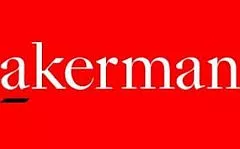Companies are increasingly turning to artificial intelligence (AI) to assist with employment related tasks, such as recruiting and hiring. AI tools are useful to increase efficiency, streamline the recruiting process, and eliminate human bias. However, these tools can pose a risk of inadvertent discrimination against job applicants. We recently published an Employer's Guide to Outsmarting Artificial Intelligence Liability in the Workplace, outlining ways employers can take advantage of AI tools while minimizing legal risks associated with this technology. As an additional resource, the U.S. Department of Labor (DOL) recently promoted a new AI & Inclusive Hiring Framework, which "offers guidance for employers, job seekers, and workers to maximize benefits and better manage risks when obtaining and using AI hiring technology." DOL promoted the framework in alignment with the Biden Administration's Executive Order on the Safe, Secure, and Trustworthy Development and Use of Artificial Intelligence.
According to the DOL's press release, the framework seeks both to "help employers reduce the risks of creating unintentional forms of discrimination and barriers to accessibility as they implement AI hiring technology," and to "help workers and job seekers navigate the potential benefits and challenges they may face when encountering AI-enabled technologies."
The AI Framework was published by the Partnership on Employment & Accessible Technology (PEAT), a private company, with funding from the DOL's Office of Disability Employment Policy (ODEP). PEAT's stated mission is "to foster collaborations in the technology space that build inclusive workplaces for people with disabilities" with a vision of "a future where new and emerging technologies are accessible to the workforce by design."
According to the DOL's press release, the framework is based on the National Institute of Standards and Technology's AI Risk Management Framework (NIST) and includes NIST's best practices for inclusive hiring. Notably, the website contains a disclaimer that "PEAT material does not necessarily reflect the views or policies of ODEP or DOL."
The Framework
The framework consists of 10 focus areas for employers:
- Identify employment and accessibility legal requirements
- Establish staff roles, responsibilities, and training
- Inventory and classify technology
- Develop policies and procedures to work with vendors
- Assess possible positive and negative impacts
- Create a process to provide accommodations for job seekers
- Understand and explain how the AI technology works
- Ensure human oversight
- Manage incidents and appeals regarding AI technology failures
- Monitor regularly the AI technology's performance, trustworthiness, and fairness
Within these focus areas are practices, goals, and sample activities that employers can adopt in their AI governance and disability-inclusive hiring initiatives. The website notes that employers do not need to implement "every practice, goal, and activity at once," but rather, the framework is a "progressive effort and will evolve over time as your organization's AI operation grows." Although the focus areas are numbered, employers are encouraged to start with the focus area that makes the most sense to their business, and to skip around at their own pace.
Takeaways for Employers
In terms practical application, the framework mostly builds on prior federal guidance, including the DOL's AI Principles and the Biden Administration's Executive Order. However, in a sea of information, the framework can serve as a helpful starting point for employers who wish to take advantage of AI technology while minimizing associated legal risk.
The content of this article is intended to provide a general guide to the subject matter. Specialist advice should be sought about your specific circumstances.


